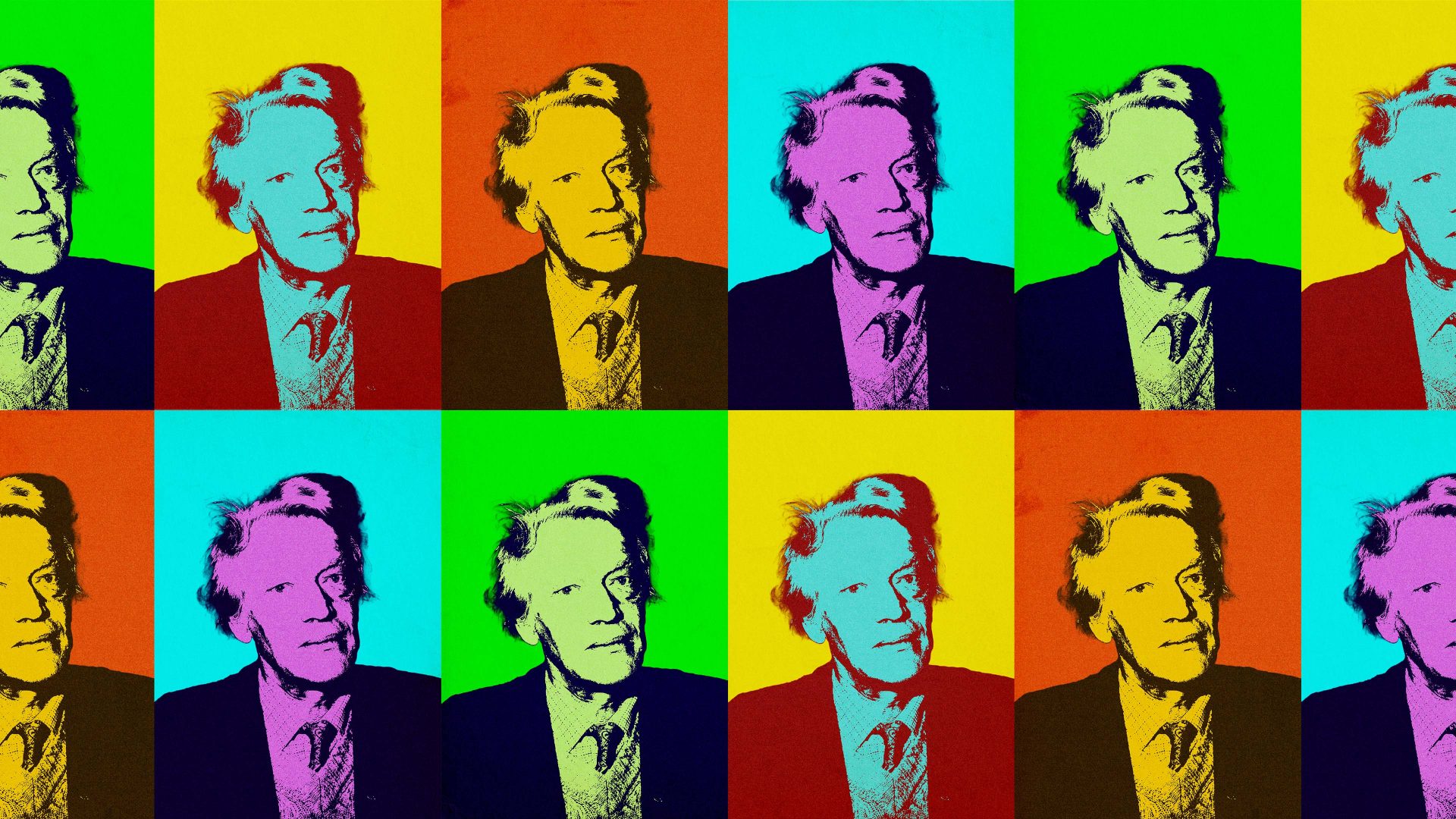On December 1, 1979, hundreds of left-wing historians gathered in St Martin’s Church, Oxford, to hear a much-anticipated plenary debate on “History, Culture, and Theory.” The speakers included Richard Johnson, a young lecturer from Birmingham, and Stuart Hall, Director of the Centre for Contemporary Cultural Studies, also at Birmingham. The real star attraction, though, was Edward Palmer (EP) Thompson, revered socialist intellectual, co-founder of the first New Left movement and veteran anti-nuclear campaigner. A recording of the debate is available from the Raphael Samuel Archive held at the Bishopsgate Institute, London.
The crowd expected fireworks. Thompson was a notorious speaker, renowned for his acerbic wit and caustic attacks on political and intellectual enemies, on the left and right alike. Sure enough, he delivered. Turning on Johnson, the unfortunate author of an article he disliked, he demanded to know if the man had not felt “a chill in his epistemological organs” when he set down his absurd claims about the limits of humanism. A few titters came from the floor. Johnson, who until then, believed himself a friend of Thompson’s, squirmed visibly.
This was not especially vicious. Worse salvos were fired at Perry Anderson and Tom Nairn when they took over the New Left Review. The French philosopher Louis Althusser had irked him so much that he wrote The Poverty of Theory (1976), an extravagant satire ridiculing the man’s mechanistic theory of culture. Yet on this occasion, Thompson simply misfired. Dissenting grumbles grew steadily from the floor, eventually drowning out the gigglers. At last, the chair of the session, Stephen Yeo, intervened: “personal power to make laugh, to goad, cajole, to shift people out of position, to persuade and so on is marvellous,” he said gently, “but there were moments… when I felt a certain lack of consciousness about the personal power he wields.”
Astonished, Thompson upbraided his critics for their lack of politics and reminded them that Marx had been a ferocious polemicist who never spared the intellectual whip – Marx’s castigation of the anarchist Pierre Joseph Proudhon, The Poverty of Philosophy, 1847, remains one of the most vicious public critiques ever published. His old comrade John Saville came to his aid insisting that “the left must stop pussy footing” around and be very hard if they wished to get any definition of purpose. This made matters worse. Over the weeks that followed, the meeting’s organisers were inundated with letters complaining about Thompson’s uncomradely behaviour.
The dramatic events of that evening dramatised long simmering tensions among the broader “New Left” on the question of means, ends, and the popular movement. While never amounting to a fully coherent programme in any of its national guises, New Left affiliates shared similar preoccupations. Firstly, to restore an ethical basis for socialism and disassociate it from Stalinism or bureaucratic labourism. Secondly, to confront the implications of rapid socio-economic change for capitalism and class politics. Finally, to explore and exploit the potential of culture as a mechanism for social transformation, even non-violent revolution.
In Britain, Thompson, an ex-communist who left the party in 1956 after the Soviet invasion of Hungary, quickly emerged as a leading New Left advocate. Stalinism, he argued, indeed, all forms of totalitarianism, came about when opportunities for dissent were shut down. No truly socialist society could evolve without the free play of conflicting perspectives. The job of the socialist intellectual, then, was not to dictate how the revolution must go or how things must be at the end of it, but to inspire in people the spirit of revolutionary energy necessary to free themselves from the thrall of authority.
In advancing this case, Thompson was not, or not just, thinking of Marx, but of the urban poet and artist William Blake. In Blake he found an ideal model for the public intellectual, part hellfire prophet, part divine messenger, whose urgent, furious poetry flayed the hypocrisies of the idle, commercialised society he found himself in. Blake’s was not the only 18th-century pen to inspire him. He also admired the satirists Pope and Swift. In their case it was less the substance of their politics (both inclined to Toryism) but their intolerance of what they considered modernity’s intellectual slovenliness, and, of course, the deliciously clever malice of their writing.
Satire, then, provided him with an important political tool, especially during the dismal days of the 1950s when, with Labour out of office, international communism discredited, and the cold war at full chill, being radical in Britain prompted at best derision, at worst outright hostility. It allowed him to work “from the inside”. By exaggerating the foolishness or callousness of powerful individuals and institutions, Thompson could expose the disjuncture between the values they claimed to stand for and their actual deeds. This, in turn, undermined their authority, exposing it as a cynical illusion and freeing people to judge for themselves the respect due to them.
The political significance of satirical savagery went beyond the contemporary political platform. Thompson found a similar spirit abroad in the history of the English people where it played a definitive role. In The Making of the English Working Class (1963) he reconstructed how the working class formed as a political identity from the torn threads of an ancient patrician culture which had, at least, assured them certain rights, and the brutal experiences of the new industrial order which destroyed these. From here, he moved backwards, delving into how a fragile “frontier” between the poor and gentry was maintained via a complex cultural interplay. His essay, The Moral Economy of the Crowd (1971) rejected the idea that mob violence in the 18th-century food riots was motivated by base instincts alone, drawing attention, instead, to how it mobilised ancient codes of popular justice and punishment.
Consequent work on Rough Music developed this further by recovering traditions of mock processions during which popular disapproval against some perceived violation of social norms was expressed by hoisting an effigy of the offender and parading it in public. During the event, marchers accompanied themselves by clattering improvised instruments (the “rough music”). Crude and often violent though these were, Thompson’s point was that displaying such aggression was a vital resource to the poor in an otherwise grossly uneven struggle.
Rituals like this worked in two ways. First, they regulated a degree of group unity. Any deviance from common values and norms weakened “the people” as a collective and their capacity for political leverage depended on their solidarity. Second, the savagery of the display signalled a warning to the wealthy and powerful of just how threatening they could be if pushed too far, even when the gentry were not themselves the direct targets.
Thompson’s discoveries fit the late 1960s countercultural mood well. Unilateral disarmament or the abolition of capitalism might be a distant dream, but not all was lost. One could keep the bastards honest, even force a few concessions, not just by pounding pavements with piles of party literature but by having fun and being rude.
For the audience gathered in St Martin’s on that cold December evening, however, things had changed. In 1970, Ruskin College, Oxford, hosted Britain’s first Women’s Movement Conference. Over the decade the movement grew, its historians and intellectuals not just recovering women’s histories, but using feminism to challenge existing ones, including those in vogue among the left. While acknowledging a great debt to Thompson, writers like Catherine Hall acknowledged the heavy masculinity of The Making of the English Working Class, the marginality of female experience, labour, and organisation in its pages, and the silence surrounding the oppression women faced within the labour movement as much as beyond it.
As for Rough Music, how often had that folk devil, partly used to reinforce a collective identity in a broader social conflict, been a woman accused of moral deviancy and worse. Even when the result of such public shaming had not resulted directly in the subject’s death, how often had women, for whom social reputation was so important, been rendered disgraced beyond all redemption. In Thomas Hardy’s The Mayor of Casterbridge (1886), the character of Lucetta was so mortified by the procession against her that she miscarried her baby and died from the complications. It was not just women – there was an all too long and galling history of people persecuted for their skin colour, their sexuality, or some other feature of their person or behaviour that “the group” considered “not normal”.
So, when Thompson took the stage with all the swagger and bluster of an experienced speaker used to adoration and belittled his fellow speaker the better to affirm his own position, the gathered crowd turned the tables. Now it was he who transgressed the norms they held, or wished to hold, namely that a real counterculture should be cooperative, not combative. Any sort of tribalism, or them-and-us thinking, resulted in tyranny. Genuine socialism was not exchanging one set of bullies for another but refusing to bully. To affirm their collective solidarity on this, they embarrassed Thompson by not laughing.
The man himself was unrepentant. A few days later he wrote a blasé reply to the organisers dismissing their concerns. He did not consider anything remarkable or unpleasant had happened that night. A few unnecessary acid drops perhaps, but as far as he was concerned, that was politics. Looking ahead to the 1980s, to Thatcher, and the resurgence of the British nuclear programme, he believed the country as a whole would need every ounce of outrage it was capable of mustering for what would be another impossible fight against implacable enemies at unwinnable odds. Sometimes the people cheered you, sometimes they turned on you, which was not necessarily a bad thing.
Sophie Scott-Brown will appear at How the Light Gets In on Saturday September 23 at 2.30, discussing “Naming and Shaming”.



